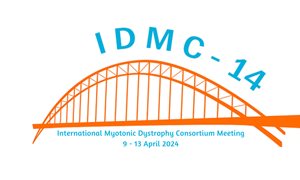
Children with Noonan syndrome benefit from an innovative treatment when they suffer from severe RASopathy-associated hypertrophic cardiomyopathy, a disease which may lead to heart failure and death. A group of international researchers, including those from Radboud university medical center, has now shown that MEK inhibitor trametinib improved the cardiac status of patients.
About one in 2,500 newborns is born with the hereditary Noonan syndrome, which in various forms leads to specific facial features, short stature, and developmental disorders. Eighty percent of children with Noonan syndrome have a (congenital) heart defect. In twenty percent of all children with Noonan syndrome, there is a severe heart condition called hypertrophic cardiomyopathy. This condition can lead to heart failure, heart transplantation, or death. In some children, the condition is present in the first year of life, while in others, it develops later.
Cancer drug blocks protein chain
Treating hypertrophic cardiomyopathy in children with Noonan syndrome is complex. They are often too small for surgery. A breakthrough occurred when international specialists discovered trametinib, a drug normally used for certain types of skin cancer. In some melanomas, cells are instructed to multiply excessively. This signal is sent through the RAS-MAPK signaling pathway, which triggers a chain of proteins. Trametinib blocks this pathway, stopping cell growth.
This same mechanism also plays a role in Noonan syndrome, where the abnormality in the RAS-MAPK signaling pathway causes hypertrophic cardiomyopathy. Therefore, trametinib might also help these children, thought different Noonan specialists, including Jos Draaisma, a former pediatrician at Radboudumc and now retired. Together with two specialists from the United States and Germany, he looked into treatment with trametinib.
Fewer heart surgeries and deaths
This targeted, innovative therapy can indeed help severely ill children, as shown by a retrospective study of 61 children. The study revealed that children who received trametinib had a lower risk of death, heart transplantation, or other major heart surgeries. Moreover, their cardiac status improved.
Radboudumc participated in this research as the only Dutch center. Pediatric cardiologist Floris Udink ten Cate is the lead physician for this specific group of children. He explains: 'In many children, we see that within two to four weeks, their heart rate decreases, and their skin regains a healthy color. This finding holds a lot of potential for the future.'

In this photo: former pediatrician Jos Draaisma (l) and Pediatric cardiologist Floris Udink ten Cate.
Further research
Further research is certainly needed, emphasize both Udink ten Cate and Draaisma. Treating children with a particular drug without scientific evidence of its effectiveness cannot be done lightly. Approval from both the Health and Youth Care Inspectorate (IGJ) and the pharmaceutical company is required for administration of expensive drugs. This means that a physician must request approval for each child individually and consult internationally about every patient before deciding to start treatment with trametinib. Draaisma adds, 'In the past, this took a lot of time and paperwork. Therefore, these results are very satisfying.'
More knowledge will help facilitate and speed up this process in the future, according to Udink ten Cate. There are still a number of research questions to address: 'We want to know what the optimal dose is for a child, and how long we should administer the drug. There are indications that treatment can be stopped after a certain period, but we don't yet know exactly how long that period is. We also want to better understand the long-term effects. But the fact that these results are promising is for sure.'
Expertise center for Noonan syndrome
At the Noonan Expertise Center at Radboudumc and in Radboudumc Amalia Children's Hospital, patients with Noonan syndrome and their families receive specialized care. In addition to providing optimal care for patients with Noonan syndrome, more knowledge is being gathered about the syndrome to facilitate further research. The center is part of the Radboudumc Expertise Center of Expertise for rare congenital developmental disorders. Individuals or parents of children with Noonan syndrome can contact the specialists at Radboudumc through their treating physician for a consultation or discussion.
About the publication
This research has been published in JACC Basic to Translational Science: Impact of MEK Inhibition on Childhood RASopathy-Associated Hypertrophic Cardiomyopathy. Cordula M. Wolf, Martin Zenker, Olga Boleti, Gabrielle Norrish, [...] Jos M.T. Draaisma, Floris E.A. Udink ten Cate, [...] Juan Pablo Kaski, Bruce D. Gelb, Gregor Andelfinger. DOI: 10.1016/j.jacbts.2024.10.002.
-
Want to know more about these subjects? Click on the buttons below for more news.
More information
Pauline Dekhuijzen

wetenschaps- en persvoorlichter
Related news items

14th International Myotonic Dystrophy Consortium Meeting Brings Hope for Treatment International leaders share new insights in Nijmegen; Family Day
4 April 2024New developments, treatments, and research will be discussed at the 14th International Myotonic Dystrophy Consortium Meeting (IDMC-14) at De Vereeniging in Nijmegen. This 5-day meeting (9-13 April) concludes on April 13th with a Family Day for patients with myotonic dystrophy and their loved ones.
read more




